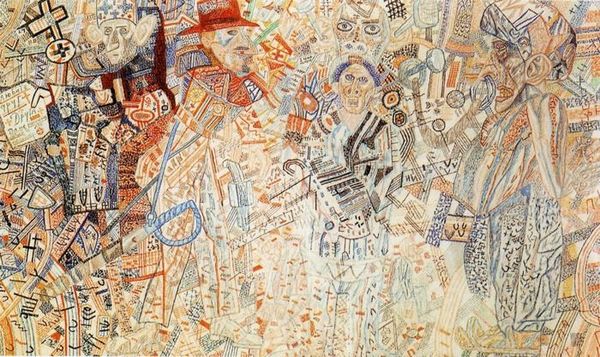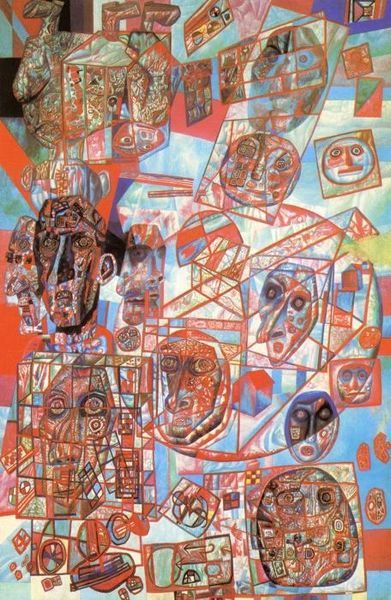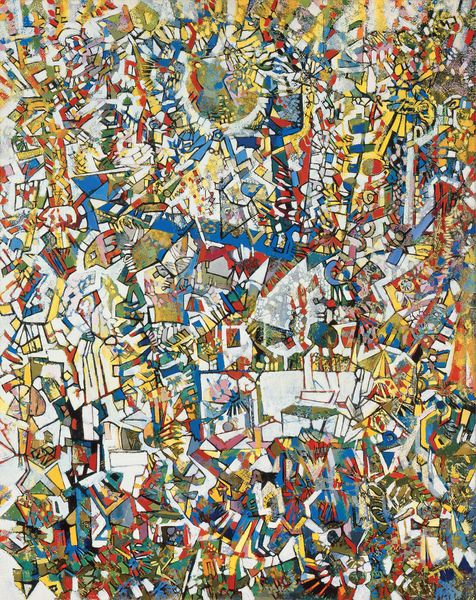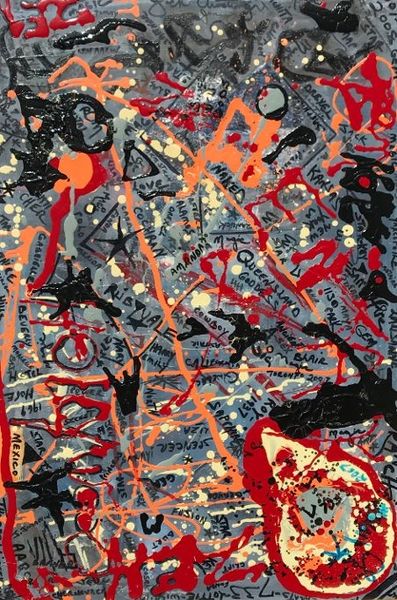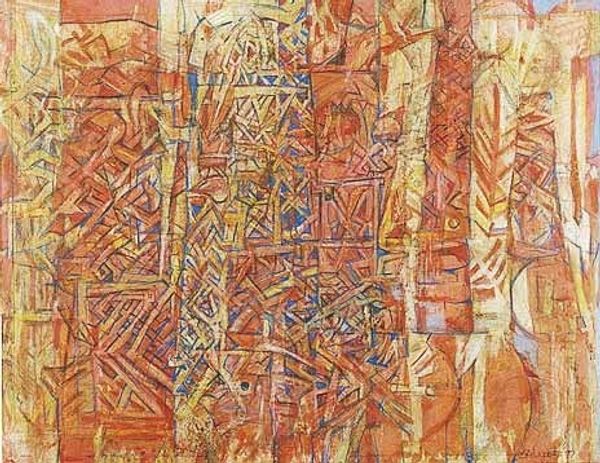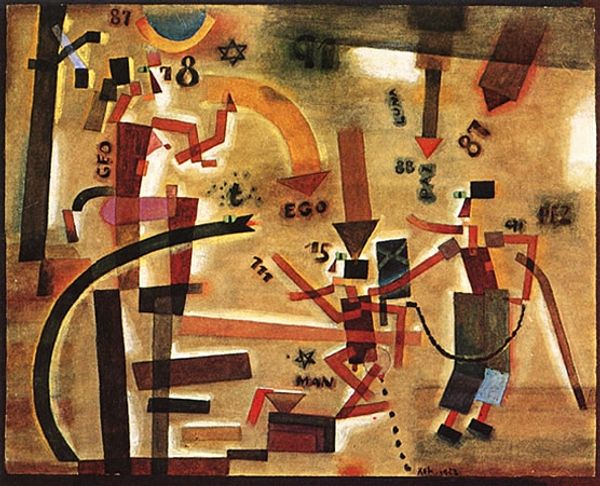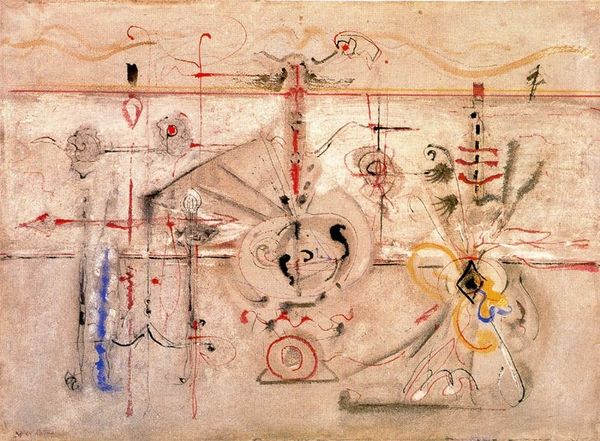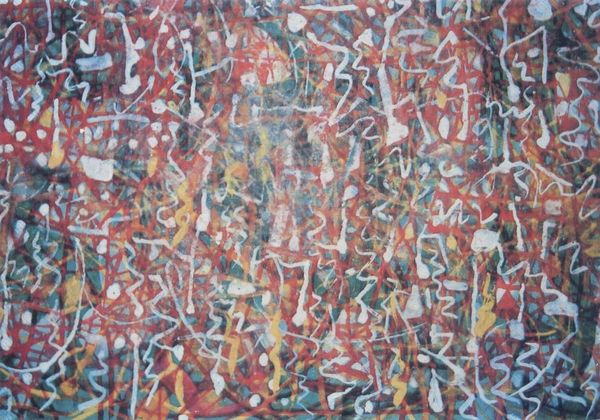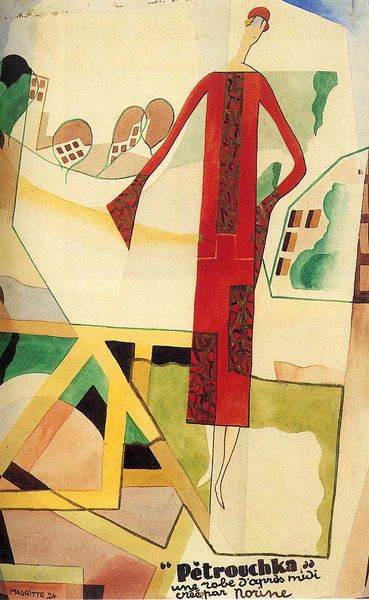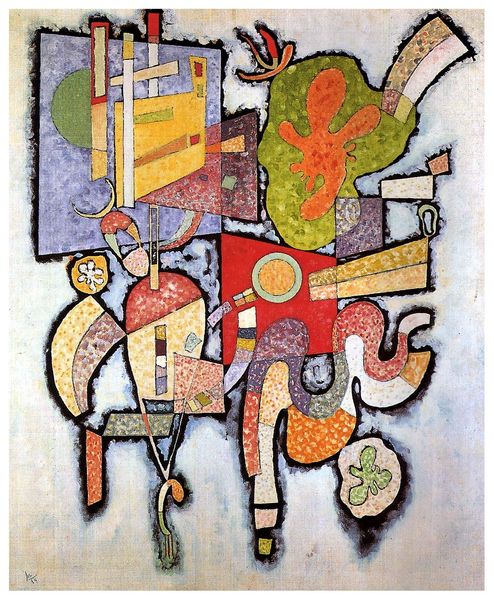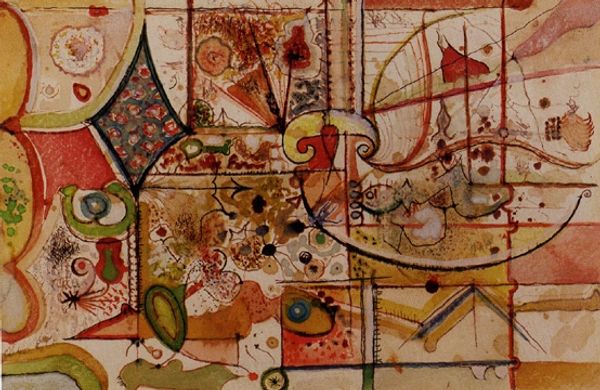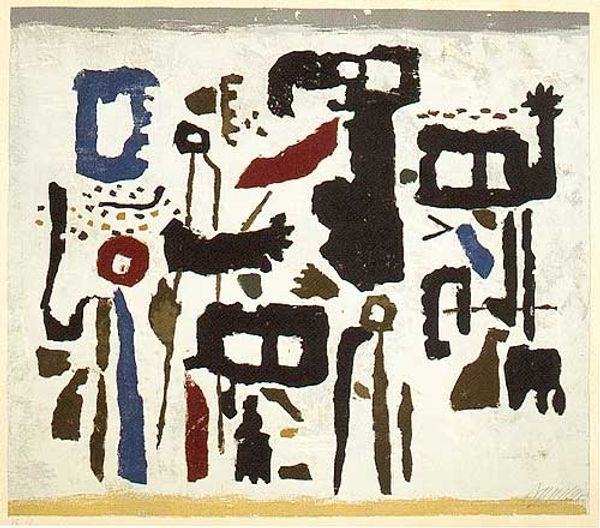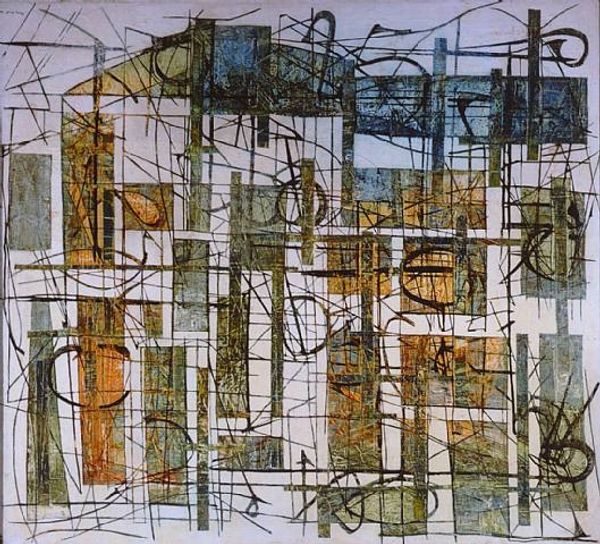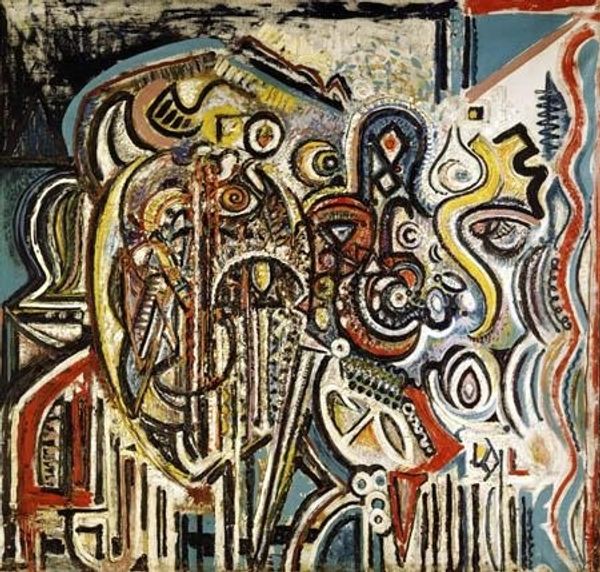
mixed-media, painting
#
portrait
#
cubism
#
mixed-media
#
painting
#
pattern
#
figuration
#
abstract pattern
#
geometric
#
russian-avant-garde
#
modernism
Copyright: Public domain
Editor: This is Pavel Filonov’s "Raider (Mugger)," made with mixed media in 1928. It has this explosive energy, a mix of geometric shapes that build into a screaming face and…an uneasy feeling. What do you see in this piece? Curator: This is a powerful piece for sure! Beyond the raw, visceral feeling, I see Filonov grappling with the societal fractures of his time. Think about the tumultuous period between the wars, especially in Russia. How does the depiction of a "mugger" – a figure on the fringes of society – reflect broader anxieties about social order and individual identity? Editor: It's almost like the chaos within the mugger is a mirror to the chaos of the era, reflected back in those sharp, broken shapes. Curator: Precisely. Consider the Russian Avant-Garde, how artists were trying to forge a new visual language for a society undergoing radical transformation. Filonov's "analytical realism" aims to show not just the outward appearance, but the internal, often conflicting, energies of a subject. Do you think the fractured style could also represent how identity can be fragmented by social pressures? Editor: Absolutely! The geometric shapes, they almost look like shattered pieces of a person, trying to assemble into something whole but never quite succeeding. It feels relevant even now, thinking about social outcasts. Curator: And it speaks volumes about the era. Can you imagine how controversial a work like this would be? Now, think about how a society treats individuals deemed ‘other’ or dangerous, how we demonize. This isn't just a mugger; it's a reflection on power, marginalization, and the societal structures that create these figures. Editor: Wow, I never would have looked at it that way. It’s so much more than just a portrait. Curator: It encourages us to really look beyond face value. To consider history, ideology, and politics inherent in how art reflects and shapes our perception. Editor: I’m glad I have new perspective on this; a more complex portrait than it seems at first glance.
Comments
No comments
Be the first to comment and join the conversation on the ultimate creative platform.
